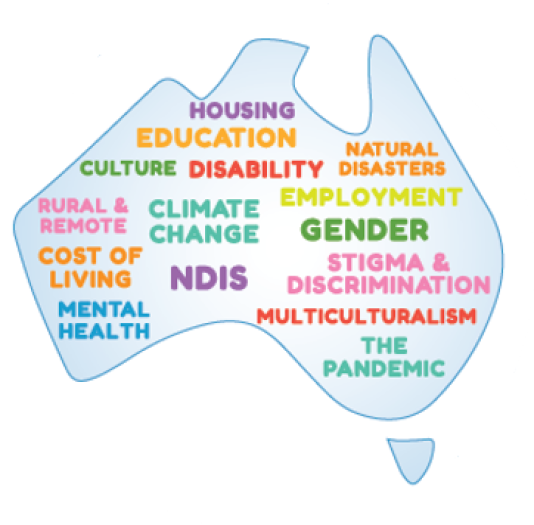I am probably biased, but I think the mental health sector could successfully compete for an award for the most amount of jargon! For example, we don’t all agree on what “community mental health” really means. Or, we talk about consumers, patients, clients, participants and those with lived experience. Historically the language that has been used about people suffering with a mental illness has been pejorative, cruel and discriminatory. And even now language is still evolving. When I first qualified I worked in a “psychiatry” setting which then became a “mental health” service. We have had National Mental Health Plans and now have a National Agreement for Mental Health and Suicide Prevention. And the Victorian Royal Commission has formally introduced “wellbeing” into the mental health domain and landscape, indicating at page 17 of the Final Report that the “addition of the concept of wellbeing represents a fundamental shift in the role and structure of the system”. We know that loneliness and social disconnection are a hidden health risk factor. More Australians than ever before report experiencing loneliness, as a symptom of a more disconnected society and compounded by pandemic restrictions. We also know that good health is not just the absence of disease. Getting out in the community, meeting people, exercising, and finding a sense of belonging can transform someone’s health and sense of wellbeing. The pandemic has not only highlighted the issue of loneliness, but exacerbated it in the most vulnerable of our populations. Social participation is about engaging with other people. It’s related to personal feelings of connectedness, and societal inclusion. Social participation is important for everyone’s mental health and wellbeing, as well as supporting recovery for people with experience of mental ill-health. Social participation is connected with other social determinants of health. Poverty, insecure housing and disadvantage limit how people can engage in the community, and are linked with poorer mental health. Employment is a key way of increasing social participation. But people with mental ill-health, and household members who care for them, are less likely to be employed than others. Mental Health Australia has urged governments to do more to address these social determinants of health and participation. This week Treasurer Jim Chalmers MP progressed a conversation about introducing “wellbeing” measures in the October Budget. In writing about this for The Conversation this week, Stephen Bartos wrote that “challenges such as child poverty, greenhouse emissions or mental health need decades of sustained effort, not four years of the standard budgeting cycle”. Seeking to determine and measure and report on how policies and investment are contributing to the wellbeing of all Australians needs to start somewhere. The federal budget planned for October will be that opportunity. What Mental Health Australia is looking for is a robust whole-of-community discussion about what measures could be incorporated into future wellbeing budgets that will improve the lives and indeed the wellbeing of all Australians. Dr Leanne Beagley
CEO | 







